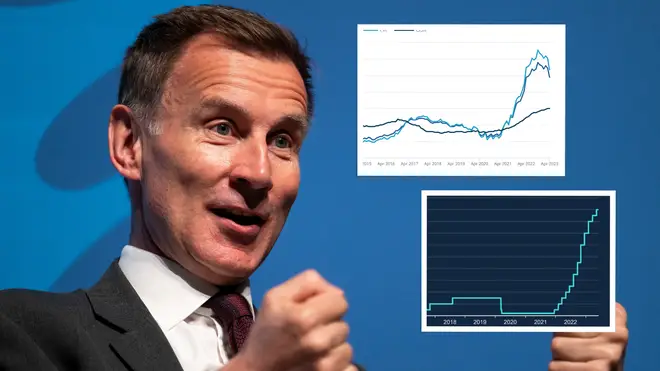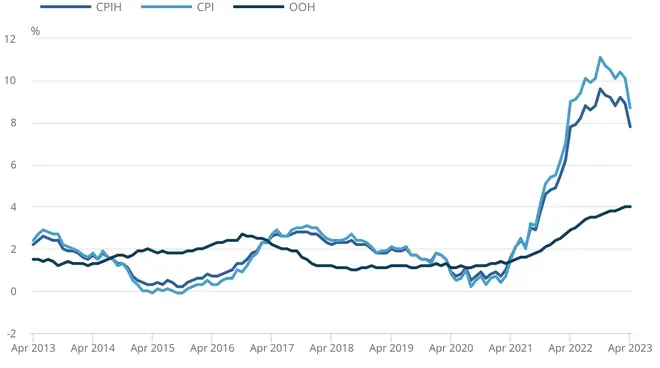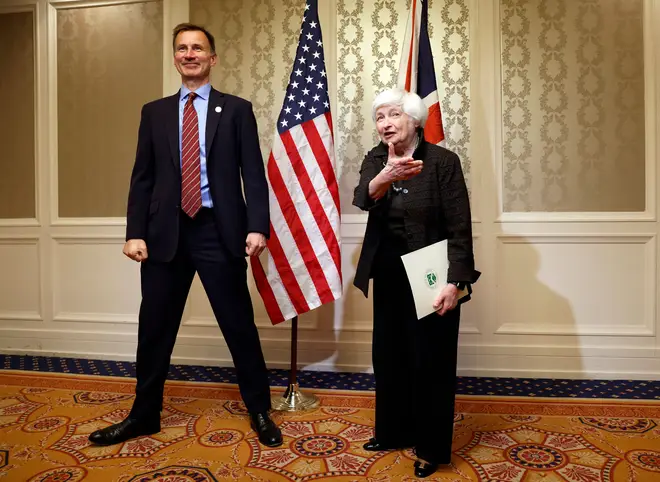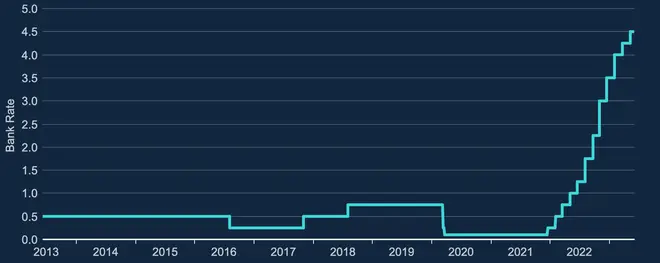
Richard Spurr 1am - 4am
7 June 2023, 09:40 | Updated: 7 June 2023, 09:56

Inflation in the UK is set to be the highest of any major developed economy this year, the Organisation for Economic Co-operation and Development (OECD) has warned.
Inflation, which recently fell to single digits for the first time since last summer, will be higher than nearly all of the OECD's members, except Argentina and Turkey.
According to their forecast, the UK's economy will grow by 0.3 per cent this year and one per cent in 2024, though said its prediction came with "significant risks".
"The high interest burden on public debt and the recent drop in average debt maturity leave the public finances exposed to movements in bond yields," a spokesperson for the OECD said.
"Renewed increases in wholesale energy prices due to Russia's war of aggression against Ukraine would further squeeze real incomes given the United Kingdom's high dependence on natural gas.
"Faster-than-expected resolution of uncertainty regarding future trade relationships is an upside risk."
Listen and subscribe to Unprecedented: Inside Downing Street on Global Player

Data released at the end of May showed that inflation had fallen to single digits for the first time since last summer, easing to 8.7 per cent in April, down from 10.1 per cent in March.
The Office for National Statistics (ONS) said the decrease was mainly driven by gas and electricity costs remaining stable in April.
It is the first time the CPI has been below 10 per cent in eight months.However, food prices are still surging at 19.1 per cent, according to today’s data.
By the end of the year, the UK's inflation rate should average 6.9 per cent, the OECD said.

Responding to the OECD's predictions, Chancellor Jeremy Hunt said: "Today's report boosts our growth forecast, praises our action to help parents back to work with a major expansion of free childcare, and recognises our cuts to business taxes which aim to drive investment.
"But while inflation is still too high, we must stick relentlessly to our plan to halve it this year. That is the only long term way to grow the economy and ease the cost of living pressures on families."
Mr Hunt previously told Sky that he would back the Bank of England raising interest rates further, even if it means the UK entering recession, in order to bring inflation down.

The OECD's new chief economist Clare Lombardelli said: "The global economy is turning a corner but faces a long road ahead to attain strong and sustainable growth.
"Monetary policymakers need to navigate a difficult road. Although headline inflation is declining thanks to lower energy prices, core inflation remains stubbornly high, more so than previously expected."
She continued: "Some economies grappling with stubbornly high core inflation may require additional interest rate increases."